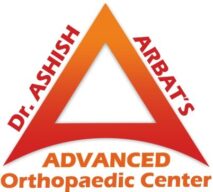The 
A surgical procedure that substitutes parts of incapacitated or worn-out knee joints is knee replacement surgery. The operation can help comfort pain and restore the knee’s functioning. During the knee replacement surgery, injured bone and cartilage are swapped with parts made of metal and plastic. To choose whether a knee replacement is appropriate for you, a surgeon checks your knee’s mobility, stability, and strength. X-rays help a knee replacement surgeon understand the extent of damage.
In this blog, Dr. Aashish Arbat a leading knee replacement surgeon in Pune mentions that the right artificial joints and surgical techniques for you depend on your weight, age, activity level, knee size and shape, and general health.
Dr. Aashish Arbat a renowned name when it comes to knee surgery explains knee replacement surgery.
Contents
Knee Replacement Surgery
Knee replacement surgery, also named knee arthroplasty, is a process that substitutes parts of injured knee joints. The purpose of the surgery is to give relief to people with acute arthritis or substantial knee impairment. Post-surgery you can enjoy improved knee function. During the process, your surgeon will replace dented cartilage and bone with a prosthetic joint made of metal and plastic. This helps restore joint firmness and mobility.
A knee replacement habitually lasts a long time. In reality, more than 90% of people who undergo knee replacement surgery enjoy better function in their knee for 10 to 15 years. Multiple studies show that 90-95 per cent of total knee replacements function well 10 years post-surgery.
Knee Surgery Arthroscopy
The Knee arthroscopy is an operating practice that permits doctors to view the knee joint without making a large incision through the skin and other soft tissues to detect and treat a wide range of knee problems by inserting a small camera (arthroscope) into the knee joint to see the inside of the joint on a screen.
Knee Replacement Surgery Recovery Time
Talking of the knee replacement recovery period, well generally, patients can go home within 3 days after total knee replacement surgery (knee replacement tkr). However, it could take you 3 months to return to most activities, then 6 months to 1 year to completely recover. A physical therapist will possibly have you exercising and walking with assistance, by the next day.
If you are looking for information on knee replacement cost; read on.
Total Knee Replacement Surgery Cost
Total knee replacement surgery cost depends on factors like choice of treatment city, type and quality of implant used, hospitalization fees, surgeon you choose and so on. To know more, read on.
The cost of knee replacement surgery depends on the city where you are choosing for the treatment. It could be a little more in metro cities as compared to non-metro cities. The type and quality of implant used play a vital role in determining the cost of the surgery. The hospitalization fees take in the type of hospital room preferred by the patient. The experience of the surgeon you choose does matter as well.
Knee replacement operation is one of the most frequently done and cost-effective musculoskeletal surgical actions. The number of cases continues to grow universally. The key sign for surgery remains painful knee osteoarthritis with abridged function and quality of life.
Knee Replacement Surgery Success Rate
Most patients have a very good clinical outcome after knee replacement. However, despite outstanding long-term survivorship, more work is needed to enhance this procedure and development is precisely focused on increasing the proportion of patients who have effective pain relief after surgery. Research proposes that over 90% of replacement knees function well after 15 years.
New technologies are likely to advance future knee replacement care further. Healthcare professionals are working recurrently to improve the outcome.
Over the past decade, progress in imaging and instrumentation has led to the development of robotic-assisted surgery. This to put it in simple words, is an approach that helps surgeons plan and perform a variety of actions with a high degree of precision.
The Truth About Knee Replacement Surgery
The truth about knee replacement surgery as mentioned by Dr. Aashish Arbat, an honored Orthopedic Surgeon in Pune, the surgery can help ease pain and improve knee function by substituting injured bone and cartilage with metal and plastic parts. Recovery can take up to a year, however, you can slowly restart normal activities as you heal. Infrequent complications may include infection or the need for a modification surgery. It is, however, important to keep in mind that the process hurts more than what you imagine.
Wrapping up
Now, that you know the knee replacement price, knee replacement surgery robotic benefits and knee surgery cost in India; you must be looking for the best hospital and surgeon for your robotic knee replacement surgery in Pune. Book an appointment with Dr. Aashish Arbat at Oyster and Pearl Hospital, Jehangir Hospital, Pune, Poona Hospital. In case you are looking for online advice reach him via TRUWELLTH. Discuss the option of robotic-assisted surgery with an orthopedic surgeon before it gets too late.
FAQ
Disadvantages of knee replacement surgery
- Prosthesis wearing out over time
- Deep vein thrombosis
- Anesthesia complications
- Infection
- Loosening of the prosthesis
- Differences in leg length
- Allergic reactions
- Nerve damage
Knee Replacement Surgery Time
Knee replacement surgery usually takes between 1 and 2 hours.
What is the Most Commonly reported problem after knee replacement surgery?
Inflexible knee joint, which can lead to difficulty with activities that necessitate a lot of bending, including sitting in a chair, or getting out of a car and going downstairs. Pain is the most common impediment after joint replacement. Contagion, which happens in about 1% of people post-surgery. Blood clots, which ensue in fewer than 2% of people. Osteolysis, is swelling due to microscopic wear of the plastic in the knee implant. The tenderness causes bone to basically soften and weaken, and is a rare complication.

